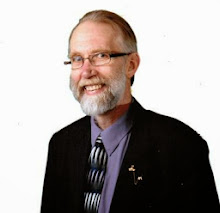Muslim Market is a $170 Billion Market, Why Aren't You Targeting It?
This is an excerpt from the white paper "American-Muslim Identity: Advertising, Mass Media & New Media." A longer version can be found at Desedo Films' blog.
"I’ve seen plenty of things making fun of us. ... We would love to be part of a general marketing campaign if the media world would accept Muslims as a common part of the North American diaspora." -- Amethyst, creator of Ninjabi
Advertising in the U.S. has often influenced the pop-culture identities of religious and ethnic minorities. To be targeted by marketers serves as an invitation to join in the national narrative of capitalism. To shop is to be an American. That being said lets look at the Muslim market for what it is or could be.
In the coming years, the U.S. market will likely begin to recognize and court the $170 billion purchasing power of American Muslims. To date, pop-culture representations of Islam are either cloaked in evil or infused with pathos. But as Hallmark, Wal-Mart and 20th Century Fox begin creating content engaging this demographic, it will slowly help to show that American Muslims are, as Farid Senzai said, "as boring as the rest of us."
When considering advertising's slow embrace of the Islamic consumer, we must acknowledge legal scholar Leti Volpp's point that "Sept. 11 facilitated the consolidation of a new identity category that groups together people who appear Middle Eastern, Arab or Muslim. This consolidation reflects a 'racialization' wherein members of this group are identified as terrorists and misidentified as citizens."
It is this perception that created the Dunkin' Donuts controversy. In a 2008 campaign for Dunkin', spokeswoman Rachael Ray wore a scarf that looked like a keffiyeh. Conservative blogger and Fox analyst Michelle Malkin then chided Ray for wearing a "jihadi chic" garment. Dunkin' Donuts dropped the advert. At no point was the spot even attempting to engage Islam or the Middle East, yet there was a backlash.
This is similar to the hurdles brands faced when first reaching out to gay and lesbian consumers. Another huge market (see earlier blogs) And as Saad Ahmad, of the blog Chill Yo, Islam Yo, said, "Seeing that we live in a capitalist society, [including Islam] in advertising is really just an economic issue."
As Almas Abbasi, a radiologist on Long Island, told The New York Times, "If Ramadan starts, and you see an ad in the newspaper saying, 'Happy Ramadan, here's a special in our store,' everyone will run to that store."
American brands do things within primarily Islamic countries -- Burger King in the United Arab Emirates, Hewlett-Packard in Bangladesh, Oreos in Indonesia, etc. But to date, no Muslim holidays are seized as sales opportunities in the U.S., except perhaps in Dearborn, Mich., the city with the highest concentration of Muslims and Middle Eastern folks in America. Wal-Mart has opened a store in Dearborn designed for this demo. According to Newsweek:
Wal-Mart offers its standard fare, plus 550 items targeted at Middle Eastern shoppers. ... Walk through the front door of the 200,000-square-foot supercenter and instead of rows of checkout counters, you find a scene akin to a farmers market in Beirut. Twenty-two tables are stacked high with fresh produce such as the kusa and batenjan, squash and eggplant used in Middle Eastern dishes. ... A walled-off section of the butcher case is devoted to halal meats.
Ikea has taken measures to court Dearborn shoppers, and the local McDonald's and KFC serve halal meat. On the national scale, Hallmark carries Eid cards, and the U.S. Postal Service issued an Eid stamp in 2001. But that's about it.
While tailoring products to reach this consumer base is one important step for retailers, author Yasmine Hafiz reminds us that "the average Muslim consumer is much like the average American consumer, with wants and needs mainly dictated by their income, education and type of family. Their socioeconomic status dictates their spending habits more than their religious affiliation. ... There's a lot of untapped buying potential amongst all these doctors and engineers."
And as noted on the blog Muslim Canvas: "I guess the value I see in this marketing stuff is the effect it'll have on the American psyche, rather than the Muslim psyche necessarily. [Seeing] a hijabi mom spreading Jif peanut butter on her son's sandwich or a long-bearded man answering the door on a Domino's commercial, could go a long way for our 'image.'"
Don't forget about the racial diversity in the faith or that only half of U.S. Muslim females wear a hijab. I do believe that new media and transmedia planning proffer a wealth of intelligent ways in which to engage and involve the Islamic consumer base.
And since there is money to be made, this will indeed happen. Soon come the adverts.
Larson note: As we moving into a more diversified American everything is taken into perspective whether we mean to or not, like the Dunkin' Donuts Rachael Ray case sited above. Aside from cultural issues I believe they are looking for people to even try to really understand who they are. Be real and they as all people will respond. Be fake and you will get a cold shoulder.
Howard Larson
Larson & Associates
Target Marketing & Telesales Professionals for new account acquisition
Making good businesses great and great businesses even better
847-991-0488
larsonassoc1975@yahoo.com
http://www.geocities.com/larsonassoc1979/1
http://larsonassociates.blogspot.com
http://member.merchantcircle.com/larsonassociates
http://teamcircle.ning.com/profile/HowardLarson
http://businessiibusiness.ning.com/profile/HowardLarson
https://twitter.com/LarsonAssociate
P.S. Need an Arab American to be working on your sales team in the area of new account acquisition. Call us.
Subscribe to:
Post Comments (Atom)

No comments:
Post a Comment